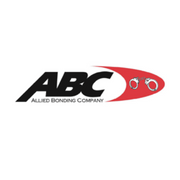How to Use Your Home as Collateral for a Bail Bond

After you or a loved one has been arrested, obtaining a quick release from jail is your top priority. If you’re granted the opportunity to post bail but lack the funds to do so, a bonding company can help. However, collateral is often required before a bail bond will be issued. This provides the bondsman with confidence that their interests are protected should you or your loved one fail to appear in court as promised. In cases where the bail amount is set particularly high, using a house may be the best solution for securing a bond. Here’s an overview of what that entails.
How Does a Property Bail Bond Work?
Required Documentation
If you have decided to offer your home as collateral for a bail bond, you must first verify ownership. This can usually be done by providing a mortgage statement, title search, or a copy of the property deed. Then the property will have to be appraised to ensure it holds enough value to cover the cost of your bail. Typically, a home can’t be used for collateral if it still has a mortgage, but an exception may be made if you have built up a substantial amount of equity. You will also need to fill out a deed of trust to make the bonding company your home’s beneficiary.
Court Hearing & Consequences
 Next, there will be a court hearing to confirm the bail bond agreement. If your house meets all the conditions to be used as collateral, the court will file a lien on your property for the amount of the bond. This gives the bondsman the right to step in and assume title to the house in the event the bail terms are violated. Foreclosure proceedings may then be started at their discretion if you are unable to come up with the cash to cover the bond.
Next, there will be a court hearing to confirm the bail bond agreement. If your house meets all the conditions to be used as collateral, the court will file a lien on your property for the amount of the bond. This gives the bondsman the right to step in and assume title to the house in the event the bail terms are violated. Foreclosure proceedings may then be started at their discretion if you are unable to come up with the cash to cover the bond.
Collateral Release
The lien on your house will remain in effect until the bail is exonerated upon completion of your case. You should receive a certified copy of the exoneration order from the court to present to your bondsman. Whether you are found innocent, the charges are dropped, or you’re sentenced, the lien will be lifted and possession of your property returned. Usually, the bonding company must send proof of the lien release within 30 days.
If you have questions about putting your house up as collateral for a bail bond, contact Allied Bonding Company. Based in Lexington, NC, they’ve spent more than 15 years helping residents throughout the Piedmont Triad area regain their freedom following an arrest. They’ll ensure you understand the bail process and guide you through the proper procedure for acquiring a property bond as fast as possible. Call (336) 239-2270 to inquire about your collateral options or visit them online to learn more about their services.
About the Business
Have a question? Ask the experts!
Send your question

